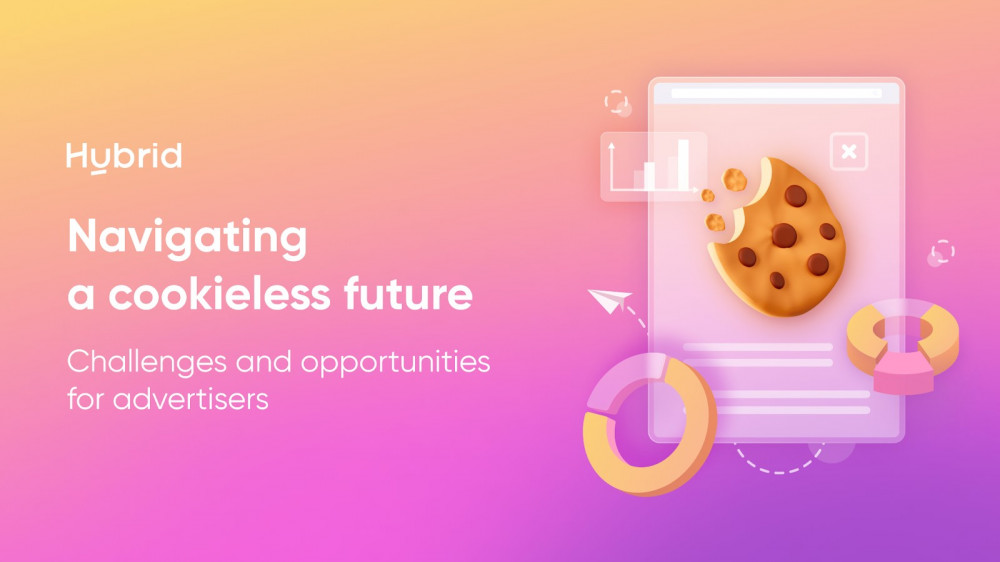Navigating a cookieless future: Challenges and opportunities for advertisers
The digital advertising industry has been undergoing a seismic shift for a while. Businesses now need to navigate the shifting digital landscape caused by Google's phasing out of third-party cookies in its Chrome browser. Since the announcement in January 2020, the ad tech sector, publishers, advertisers, and marketers have been racing to find viable alternatives to third-party cookies, upon which so much digital marketing activity relies. The shift has created significant concern among marketers, as they try to balance personalization with consumer privacy in a cookieless future.
For years, cookies have been the backbone of online advertising, allowing advertisers to track user behavior and deliver targeted ads. However, as privacy concerns continue to mount, major browsers like Google, Firefox, and Safari are phasing out support for third-party cookies. This shift is set to disrupt the entire advertising ecosystem, and it is imperative for marketers to brace for a future without cookies.
The challenges
The end of cookies presents several challenges for the digital advertising industry. The most significant of these is the loss of user data. Without cookies, advertisers will no longer have access to user browsing histories, search queries, and other behavioral data. This makes it difficult to deliver targeted ads and measure campaign success.
Another challenge is the fragmentation of data. With third-party cookies, advertisers could rely on a single identifier to track users across multiple websites. Without cookies, advertisers will need to use alternative methods to track users, such as device IDs and email addresses. This can lead to fragmented data sets that are difficult to reconcile.
Finally, the shift to a cookieless world could lead to a loss of revenue for publishers. Without the ability to deliver targeted ads, publishers may see a decline in ad rates, making it difficult to monetize their content.
Opportunities and the role of Hybrid
Despite the challenges, a cookieless world presents several opportunities for advertisers. The most significant of these is the opportunity to build trust with consumers. With the rise of privacy concerns, consumers are becoming more skeptical of online tracking. By embracing a privacy-first approach to advertising, advertisers can build trust with consumers and establish long-term relationships.
This is where Hybrid comes into play. As a leading provider of advanced advertising solutions, Hybrid specializes in privacy-centric and consent-based advertising strategies. Their innovative technology In-Images Ads – VOX and page content analyzing Semantica enables advertisers to deliver targeted ads without relying on cookies, respecting user privacy while still providing personalized experiences. Hybrid's platform harnesses contextual targeting, leveraging the content and context of web pages to deliver relevant ads to consumers.
Furthermore, Hybrid empowers advertisers to leverage first-party data effectively. With the loss of third-party cookies, advertisers need to prioritize their own data assets. Hybrid's data management capabilities allow advertisers to build robust first-party data sets, enhancing their understanding of customer preferences and enabling effective targeting and personalization.
Getting ready for a cookieless world requires proactive steps, and Hybrid is at the forefront of enabling advertisers to navigate this transition successfully. By partnering with Hybrid, advertisers gain access to advanced targeting capabilities, privacy-first solutions, and industry expertise that help them adapt to the new advertising landscape.
To prepare for a cookieless world, advertisers need to take several steps. The first of these is to audit their current data strategies and identify areas that need improvement. Advertisers should focus on building first-party data sets and investing in tools and technologies that support contextual targeting and consent-based advertising.
Another important step is to establish strong relationships with customers. Advertisers should focus on building trust and transparency with customers, providing them with clear information about how their data is being used and giving them control over their privacy preferences.
Finally, advertisers should focus on collaboration. The shift to a cookieless world requires a collective effort from the entire industry. Advertisers should work closely with publishers, ad tech vendors, and other stakeholders to develop new solutions and standards that support a privacy-first approach to advertising.
The end of cookies is a significant challenge for the digital advertising industry, but it also presents an opportunity for advertisers to build stronger relationships with customers and innovate their approach to targeting and measurement. By embracing a privacy-first approach and investing in alternative methods of tracking and targeting, advertisers can prepare for a future without cookies and thrive in a rapidly evolving landscape.







Share
Facebook
YouTube
Tweet
Twitter
LinkedIn